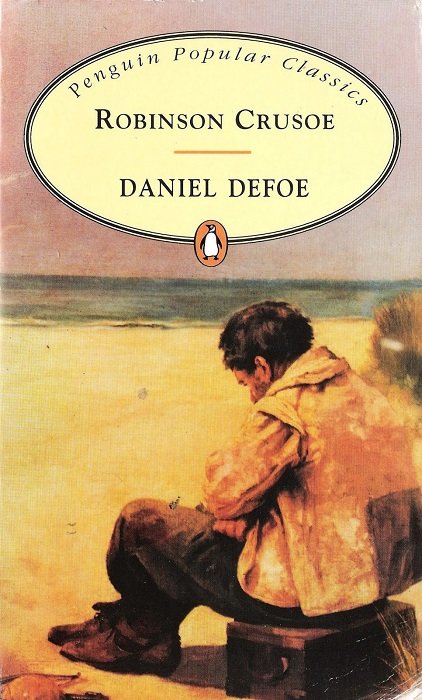Life and creativity of Daniel Defoe /part 2/
Defoe's novels were published anonymously, as the author kept them to serve as readers as authentic memoirs. The intention of the author was to trick the readers into accepting them as stories. The two superb examples of such a deception are the "handwritten notes" of the mummy adventures in the Mol Flanders, the story of a London prostitute and a thief, and an almost documentary recreation of the great plague epidemic that, in 1665, rages across London into the novel " Diary of the Pest Year ". After a very dramatic twist, disappointment and failure, existence, Defoe died in 1731 in extreme poverty, abandoned by his own son robbery.
Often, the phrase of Defoe, which most accurately sums up his ideas of man and nature, is quoted: "All people of their birth are crooks, robbers, thieves, and murderers. If there was no deterrent power of Providence, nothing would prevent us from giving us the opportunity to manifest ourselves as we are." This English writer embodies in the characters of his characters, relies on their mischief, their philosophy of success and wealth his faith in the omnipotence of Providence. Thanks to his talent to create credible situations, to use his extremely rich imagination and experience and to develop patiently the details, Defoe laid the foundations of the novel genre at the dawn of the Enlightenment. In the enlightenment novel, Defoe introduced the actual discussions about the structure of society and the moral principles on which human nature is built. The founder of the novel in England is attracted to the disputes that periodically erupt in the press and keeps disclosing its views on a political, social or moral issue. He feels sufficiently dedicated in the areas of politics, economics, education, law, religion and metaphysics. Defo uses his wide-ranging intellectual preparation when he engages as a writer in the novel's field.
According to the authoritative English literary historian and critic Arnold Kettle, Defoe's novels "radiate stability", and this is "their most precious quality," because it is based on "their painful but potent credibility": Fiction has never been closer to the truth - the superficial truth corresponding to the vital philosophy of the average reader, nor did any other novelist make more effort to persuade the reader in the truth. This commitment by Defoe is largely due to the roots in the then-reader-puritan preconceptions, which are often built upon the assumption that fiction, as long as it is loaded with illusions, creates false notions. In 1719, Defoe wrote the novel "Life and Strange Surprising Adventures of Robinson Crusoe", followed by two less fascinating parts. He approached the creation of the novel about Robinson Crusoe with the enlightening enthusiasm characteristic for his era. The rapid success of this work is largely conditioned by its deep spiritual attachment to the Puritan morality, in which the enterprising, sparing, balanced and impeccably virtuous man rises in the cult. The success of this work is due to "the courage of Defoe to attract interest in the most prosaic, never before used in the artistic literature activities and activities and to convince their merits. Defoe's readers discover artistically meaningful work and life experiences and fall into a hero with whom they have a common language and purpose. " The Englishman Arnold Kettle notes that "one of Defoe's notable defeats is his ability to overcome Puritan's suspicion of imagination." Indeed, then the prophets of the Puritan doctrine claimed that one should not surrender to fantasies, since he would have to pay dearly in the raw life for his delusions. "Only self-help has been perceived as a satisfying moral position, and this was the predominant position that both Defoe and his readers maintained," Kettle said.

You post insightful intelligent content on a regular basis, I really appreciate it.
What are your thoughts on the charges of racism on the novel?
Then was just such times, I personally do not see anything reprehensible about it. It was just the reality. If you notice the first films in the cinema from the current perspective are highly racist, but then it was something normal, as it is normal now to assume that every individual is unique.
It is far deeper than a mere racism. For me art should not be limited to this plane and any political suggestions. :)
Nice post about defoe's novel!!
thanks for this info
He was a great man
your first part about Life and creativity of Daniel Defoe was awsome .just now i read your second part its also nice . @godflesh. checkout my new blog and show some support.
https://steemit.com/photography/@siddhinath/varanasi-tour
You always post informative post on regular basis.